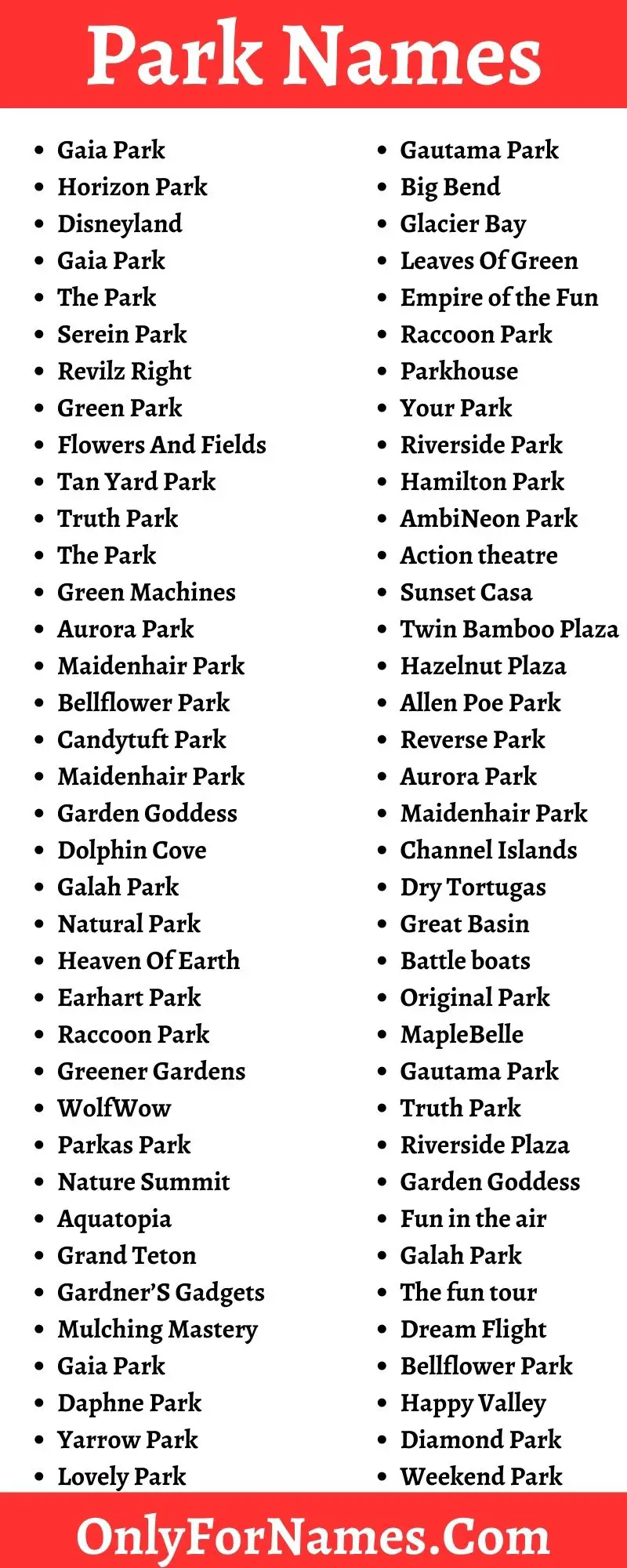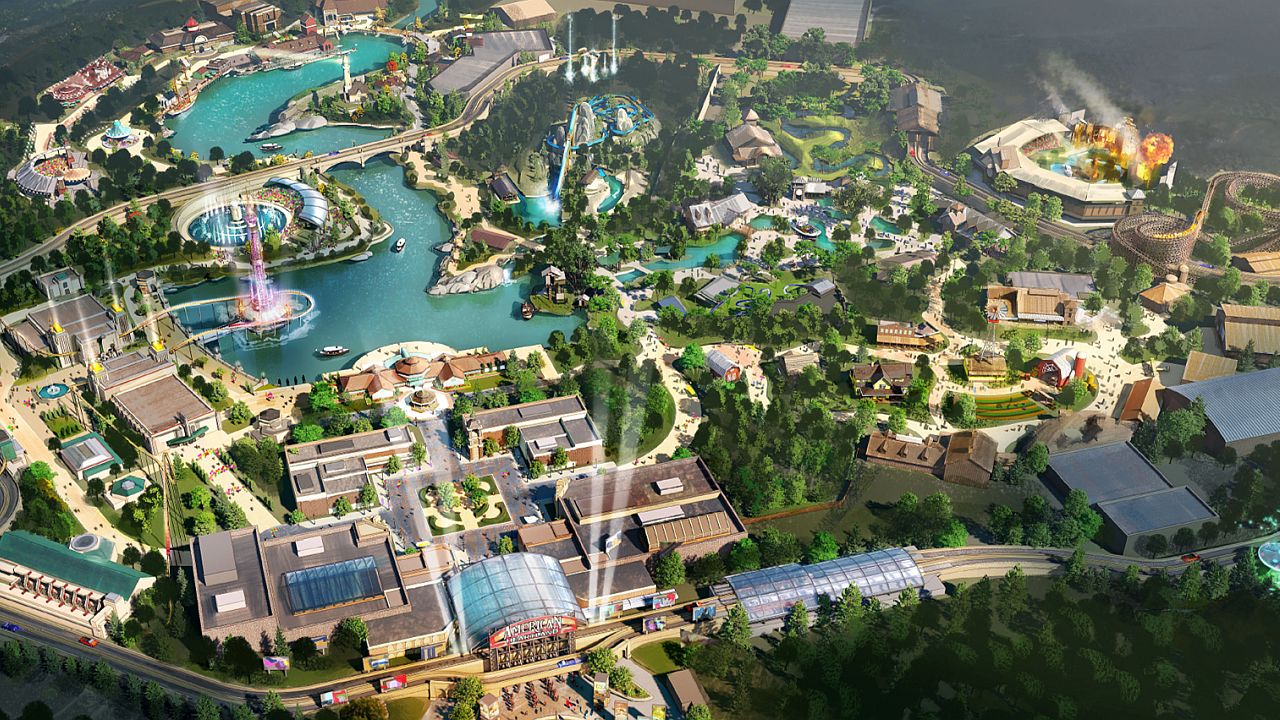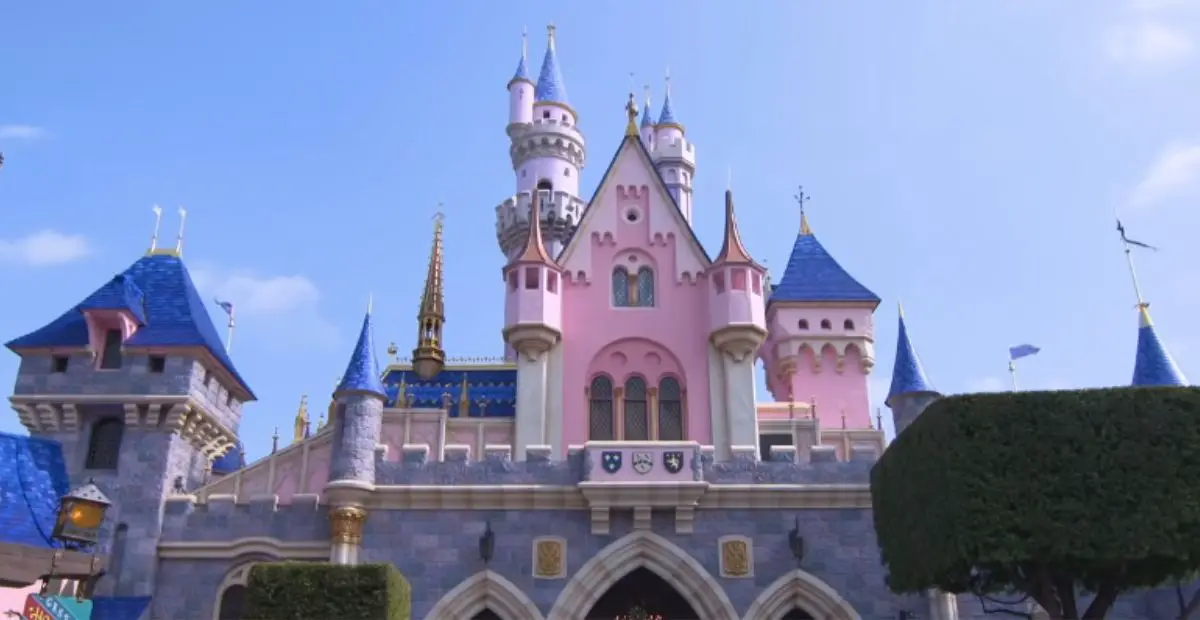Unlocking the Secrets of Memorable Theme Park Names
A catchy and memorable name is crucial for a theme park’s success, as it sets the tone for the entire park experience. A well-chosen name can evoke emotions, create curiosity, and establish a connection with potential visitors. When it comes to theme park names, the goal is to create a brand identity that is both unique and memorable. This is why theme park owners and marketers invest significant time and effort into brainstorming name ideas for theme parks that will resonate with their target audience.
A memorable theme park name can have a significant impact on branding, marketing, and visitor engagement. It can help to differentiate the park from competitors, create a sense of excitement and anticipation, and establish a loyal fan base. Moreover, a well-chosen name can also influence the park’s overall aesthetic, from the logo and signage to the merchandise and marketing materials.
When brainstorming name ideas for theme parks, it’s essential to consider the park’s theme, target audience, and unique features. For example, a theme park focused on thrill rides might choose a name that emphasizes excitement and adventure, such as “Thrilltopia” or “Adrenaline World.” On the other hand, a park focused on family-friendly attractions might choose a name that emphasizes fun and entertainment, such as “Funland” or “Playville.”
Ultimately, the key to creating a memorable theme park name is to find a balance between creativity and practicality. The name should be easy to remember and pronounce, while also reflecting the park’s unique identity and brand values. By investing time and effort into brainstorming name ideas for theme parks, owners and marketers can create a brand identity that will attract visitors and establish a loyal fan base for years to come.
How to Brainstorm Innovative Theme Park Name Ideas
Brainstorming name ideas for theme parks requires a combination of creativity, research, and analysis. To generate innovative and effective name ideas, consider the following techniques:
Mind mapping is a powerful tool for brainstorming name ideas. Start by writing down the park’s theme, target audience, and unique features in the center of a map. Then, create branches and sub-branches to explore related ideas and concepts. This visual approach can help to stimulate creativity and identify patterns and connections.
Word association is another effective technique for generating name ideas. Write down a list of words related to the park’s theme, such as “adventure,” “thrill,” or “fantasy.” Then, use these words as prompts to generate new ideas and combinations. For example, “Thrillville” or “Fantasyland” could be potential name ideas.
Researching popular culture trends can also provide inspiration for theme park name ideas. Look at current movies, TV shows, and books that align with the park’s theme. Identify key words and phrases that resonate with the target audience and incorporate them into the name. For example, “Harry Potter World” or “Star Wars Land” could be effective name ideas.
When brainstorming name ideas for theme parks, it’s essential to consider the park’s unique features and target audience. A name that resonates with the target audience and reflects the park’s unique identity can help to establish a loyal fan base and differentiate the park from competitors.
Some popular theme park name ideas include:
- Thrillville
- Fantasyland
- Adventure World
- Wonderland
- Imagination Station
These name ideas incorporate elements of excitement, adventure, and fantasy, which are common themes in theme parks. By using these techniques and considering the park’s unique features and target audience, you can generate innovative and effective name ideas for your theme park.
Theme Park Name Ideas Inspired by Mythology and Fantasy
Mythology and fantasy have long been a source of inspiration for theme park name ideas. These themes offer a wealth of creative possibilities, from magical kingdoms to mythical creatures. By tapping into the world of mythology and fantasy, theme parks can create immersive and enchanting experiences that transport visitors to new and exciting worlds.
One example of a theme park name inspired by mythology and fantasy is “Dragon’s Realm.” This name evokes a sense of excitement and adventure, suggesting a park that is home to thrilling rides and attractions. Similarly, “Wonderland Adventures” is a name that conjures up images of a fantastical world, full of wonder and curiosity.
Other examples of theme park name ideas inspired by mythology and fantasy include:
- Mythic Mountains
- Fantasy Forest
- Legendary Land
- Enchanted Empire
- Magical Kingdom
These names draw on the rich cultural heritage of mythology and fantasy, creating a sense of depth and history that can help to establish a theme park’s brand identity. By using names that evoke a sense of wonder and enchantment, theme parks can create an immersive experience that will leave visitors feeling inspired and delighted.
For example, Universal’s Islands of Adventure theme park features a “Mythos” area, which is inspired by mythology and fantasy. The area features attractions and rides based on mythical creatures and legendary heroes, creating an immersive experience that transports visitors to a world of wonder and adventure.
Similarly, Disneyland’s Fantasyland area is inspired by mythology and fantasy, featuring attractions and rides based on classic fairy tales and legends. The area is designed to evoke a sense of enchantment and wonder, creating an immersive experience that is perfect for families and children.
By using theme park name ideas inspired by mythology and fantasy, parks can create an immersive experience that will leave visitors feeling inspired and delighted. Whether it’s a magical kingdom, a mythical mountain range, or an enchanted forest, these names offer a wealth of creative possibilities for theme parks looking to establish a unique brand identity.
Using Wordplay and Puns to Create Catchy Theme Park Names
Wordplay and puns can be a fun and creative way to come up with name ideas for theme parks. By using clever language and clever turns of phrase, theme parks can create names that are both memorable and engaging. In this section, we’ll explore some examples of theme park names that use wordplay and puns to great effect.
One example of a theme park name that uses wordplay is “Thrillville.” This name plays on the idea of thrills and excitement, suggesting a park that is full of adrenaline-pumping rides and attractions. Another example is “Screamland,” which uses a play on words to create a name that is both fun and frightening.
Other examples of theme park name ideas that use wordplay and puns include:
- Laugh-A-Palooza
- Thrill-A-Minute
- Funtopia
- Adventureland
- Spookville
These names use clever language and wordplay to create a sense of excitement and adventure. By using puns and double meanings, theme parks can create names that are both memorable and engaging.
For example, the theme park “Knott’s Berry Farm” uses a play on words to create a name that is both fun and clever. The park’s name is a reference to the farm’s origins as a berry farm, but it also has a clever double meaning that suggests a fun and exciting experience.
Another example is the theme park “Six Flags,” which uses a play on words to create a name that is both memorable and engaging. The park’s name is a reference to the six flags that have flown over Texas, but it also has a clever double meaning that suggests a fun and exciting experience.
By using wordplay and puns, theme parks can create names that are both memorable and engaging. These names can help to establish a park’s brand identity and create a sense of excitement and adventure that will attract visitors from all over.
Theme Park Name Ideas that Reflect the Park’s Location or Culture
When it comes to theme park name ideas, one effective approach is to reflect the park’s location or culture. This can help to create a sense of place and authenticity, making the park feel more connected to its surroundings. In this section, we’ll explore some examples of theme park name ideas that reflect the park’s location or culture.
One example of a theme park name that reflects the park’s location is “Bayou Blast.” This name evokes the idea of a fun and exciting experience set in the bayous of Louisiana. Another example is “Tokyo Thrills,” which suggests a park that is inspired by the vibrant city of Tokyo.
Other examples of theme park name ideas that reflect the park’s location or culture include:
- California Adventure
- Florida Funland
- Texas Thrills
- New York Nights
- Las Vegas Lights
These names use the park’s location to create a sense of place and authenticity. By incorporating local references and cultural nods, theme parks can create a sense of connection to their surroundings that will resonate with visitors.
For example, the theme park “Dollywood” in Tennessee uses its location to create a sense of place and authenticity. The park’s name is a reference to the nearby Great Smoky Mountains, and the park’s theme is inspired by the local culture and history.
Another example is the theme park “Epcot” in Florida, which uses its location to create a sense of place and authenticity. The park’s name is a reference to the nearby city of Orlando, and the park’s theme is inspired by the local culture and history.
By reflecting the park’s location or culture, theme parks can create a sense of place and authenticity that will resonate with visitors. This can help to establish a loyal fan base and differentiate the park from competitors.
Creating a Unique Brand Identity through Theme Park Naming
A well-chosen theme park name is just the beginning of creating a unique brand identity. To truly stand out from the competition, theme parks must consider the entire visual branding experience, including logos, taglines, and overall aesthetic. In this section, we’ll explore the importance of creating a cohesive brand identity and how it can help to establish a loyal fan base.
A unique brand identity is essential for theme parks, as it helps to differentiate the park from competitors and establish a recognizable brand. A well-designed logo, for example, can become an iconic symbol of the park’s brand, while a catchy tagline can help to capture the park’s essence and tone.
For example, the theme park “Disneyland” has a distinctive logo that is instantly recognizable, featuring a stylized “D” and a castle silhouette. The park’s tagline, “The Happiest Place on Earth,” is also a key part of its brand identity, conveying a sense of joy and wonder that is central to the Disney experience.
Another example is the theme park “Universal Studios,” which has a bold and modern logo that reflects the park’s focus on movie magic and behind-the-scenes experiences. The park’s tagline, “Ride the Movies,” is also a key part of its brand identity, emphasizing the park’s unique blend of thrill rides and cinematic experiences.
When creating a unique brand identity for a theme park, it’s essential to consider the park’s target audience and unique features. For example, a park that is geared towards families with young children may want to create a brand identity that is playful and colorful, while a park that is geared towards thrill-seekers may want to create a brand identity that is bold and edgy.
Ultimately, a well-chosen theme park name is just the beginning of creating a unique brand identity. By considering the entire visual branding experience, including logos, taglines, and overall aesthetic, theme parks can establish a recognizable brand that will attract visitors and establish a loyal fan base.
Real-Life Examples of Successful Theme Park Names
When it comes to theme park names, there are many examples of successful parks that have chosen names that are both memorable and effective. In this section, we’ll explore some real-life examples of successful theme park names and analyze what makes them effective.
One example of a successful theme park name is Disneyland. This name is simple, yet effective, and has become synonymous with family-friendly entertainment. The name Disneyland is also highly memorable and easy to pronounce, making it a great choice for a theme park.
Another example of a successful theme park name is Universal Studios. This name is highly recognizable and has become associated with movie magic and behind-the-scenes experiences. The name Universal Studios is also highly versatile, allowing the park to incorporate a wide range of themes and attractions.
Cedar Point is another example of a successful theme park name. This name is highly memorable and has become associated with thrill rides and roller coasters. The name Cedar Point is also highly evocative, conjuring up images of a scenic and natural environment.
These names are all effective because they are highly memorable, easy to pronounce, and highly evocative. They also reflect the unique theme and tone of each park, making them highly recognizable and distinctive.
When analyzing these names, it’s clear that they all share certain characteristics that make them effective. They are all simple, yet memorable, and highly evocative. They also reflect the unique theme and tone of each park, making them highly recognizable and distinctive.
By studying these examples, theme park owners and marketers can gain valuable insights into what makes a successful theme park name. By incorporating these characteristics into their own name, they can create a name that is both memorable and effective, and helps to establish their park as a must-visit destination.
Tips for Finalizing Your Theme Park Name Idea
Once you have generated a list of potential theme park name ideas, it’s time to finalize your choice. Here are some tips to help you make the right decision:
First, test the name with your target audience. Ask for feedback from potential visitors, and see how they react to the name. This will help you gauge the name’s appeal and make any necessary adjustments.
Next, ensure that the name is easy to remember and pronounce. A name that is difficult to remember or pronounce can be a major turn-off for visitors. Make sure the name is simple, yet distinctive, and easy to spell.
Verify the availability of the desired web domain and social media handles. In today’s digital age, it’s essential to have a strong online presence. Make sure the name you choose is available as a web domain and social media handle, and that it’s easy to find and remember.
Consider the brand identity and overall visual branding of the park. The name should reflect the park’s theme, tone, and style. Make sure the name is consistent with the park’s brand identity and overall visual branding.
Finally, make sure the name is unique and distinctive. Avoid using names that are too similar to existing theme parks or brands. A unique and distinctive name will help your park stand out from the competition and establish a loyal fan base.
By following these tips, you can finalize a theme park name idea that is both memorable and effective. Remember to test the name with your target audience, ensure it’s easy to remember and pronounce, verify the availability of the desired web domain and social media handles, consider the brand identity and overall visual branding, and make sure the name is unique and distinctive.






